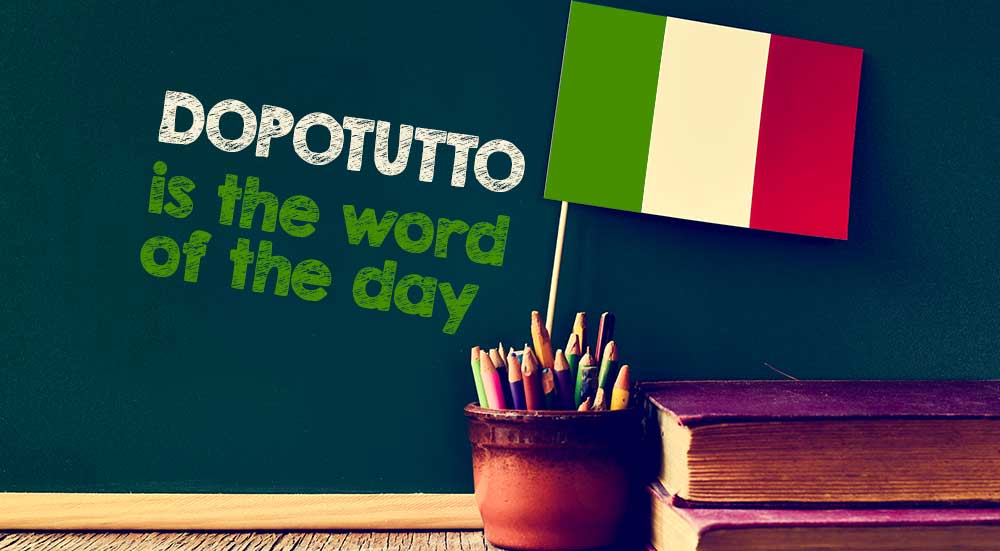The Italian word dopotutto (doh-poh-toot-toh) a compound of “dopo” (after) and “tutto” (all or everything), encapsulates the idea of summing up or concluding with consideration of all facts, akin to the English phrases “after all” or “in the end.” This term is rooted in the Italian language’s Latin origins, with dopo coming from the Latin adverb post, “after,” and tutto deriving from the adjective totus-a-um, which means “all.”
However, the compound dopotutto, is a relatively modern construction in the Italian language, as it likely started being used in its current form during the evolution of modern Italian, which began to take shape during the late medieval and early Renaissance periods. This was a time when the Italian language was experiencing significant development and standardization, especially with the proliferation of literature and poetry that played a crucial role in shaping its structure and vocabulary.
Dopotutto is commonly used in both spoken and written Italian, serving as a transitional term that helps in drawing conclusions or shifting the narrative towards a summarization, but also in introducing final observations or justifications. For instance, in a sentence like Ha deciso di unirsi a noi per la cena, dopotutto era libero quella sera, it translates to “He decided to join us for dinner, after all, he was free that evening,” and presents a conclusion drawn after considering all circumstances.
Here are some more examples of its use!
- Dopotutto, si è rivelato un buon investimento
- In the end, it turned out to be a good investment
- Non dovresti essere così sorpreso, dopotutto conosci il suo comportamento
- You shouldn’t be so surprised, after all, you know his behavior
- Ma perché non ti riposi un poco? Dopotutto sei in vacanza!
- Why don’t you rest a little? You’re on holiday in the end!































